Ghosts of Empire (37 page)
Authors: Kwasi Kwarteng


Â
Flora Shaw (1852â1929) was a well-known journalist who married Lord Lugard in 1902. The pair, who both believed fervently in Britain's imperial mission, became one of the most influential couples in the Empire.
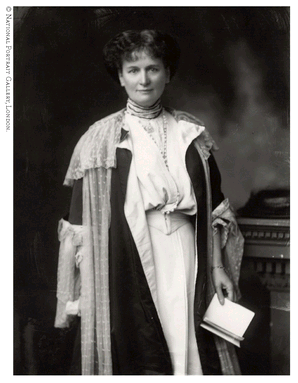
Â
Lord Lugard (1858â1945) (
centre
) benignly extending hospitality to Nigerian chiefs at London's Regent's Park Zoo. Back in Britain, Lugard fraternized with, and entertained, visiting chiefs, while never questioning the basis of British rule.
centre
) benignly extending hospitality to Nigerian chiefs at London's Regent's Park Zoo. Back in Britain, Lugard fraternized with, and entertained, visiting chiefs, while never questioning the basis of British rule.
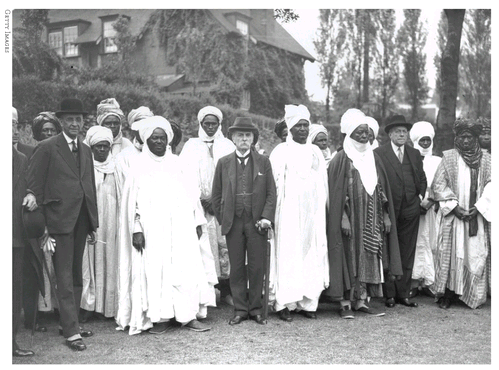
Â
Aung San (
centre
), the young Burmese independence leader, with the Labour Prime Minister, Clement Attlee, and other Burmese politicians in the independence talks held in London in January 1947. Independence came a year later in January 1948, but Aung San did not live to see it.
centre
), the young Burmese independence leader, with the Labour Prime Minister, Clement Attlee, and other Burmese politicians in the independence talks held in London in January 1947. Independence came a year later in January 1948, but Aung San did not live to see it.
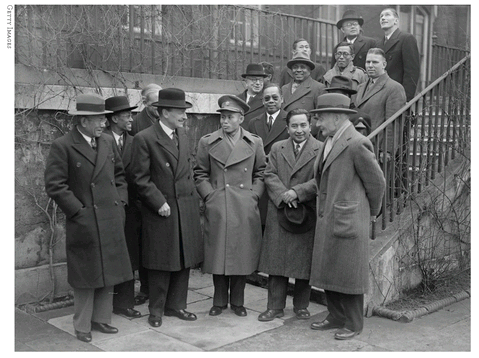
Â
Hari Singh (1895â1961), the last Maharaja of Kashmir, whose decision determined Kashmir's accession to India in 1947. Difficult and proud, Hari Singh was exiled in Bombay and then formally deposed by Nehru's Congress-led Indian Government.
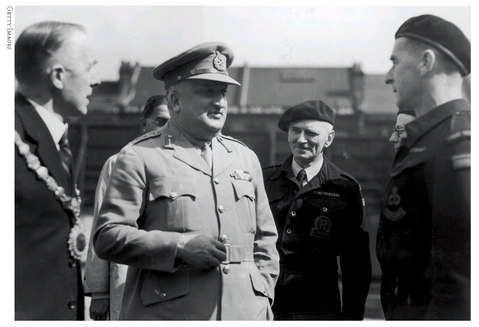
Â
Sir Abubakar Tafewa Balewa (1912â66), a Muslim from the North, was the first Prime Minister of independent Nigeria between 1960 and 1966. His assassination in January 1966 in a military coup marked the beginning of the crisis which led to the Biafran War of 1967â70.
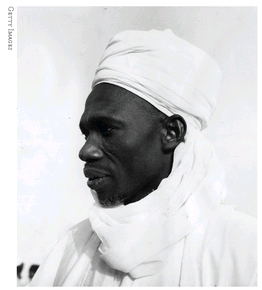
Â
Chukwuemeka Ojukwu, the son of a wealthy businessman, was educated at Oxford University. He described his years there as the âhappiest in his life'. A career soldier, he would lead the briefly independent state of Biafra during the Biafran War. Here, he is pictured introducing Biafra's new currency in January 1968.
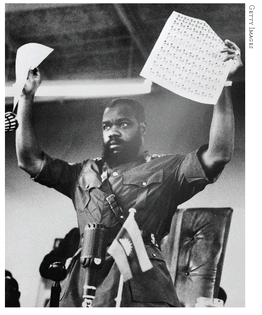
Â
The referendum held in Southern Sudan in January 2011 marked a turning point in the country's history. The establishment of Southern Sudan was a repudiation of the attempt to create a united Sudan from two very different elements, the Muslim North and the Christian South. This development shows how contentious many legacies of the British Empire remain.
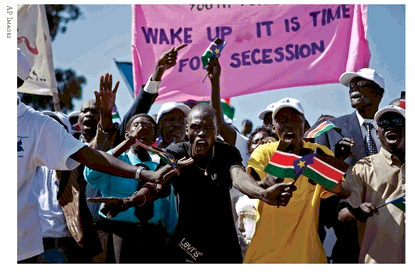
Â
Colonial life in Hong Kong in the 1940s. The British were known for transplanting a âlittle corner' of England to every outpost of the Empire. Here, people are playing bowls, a quintessentially English game.
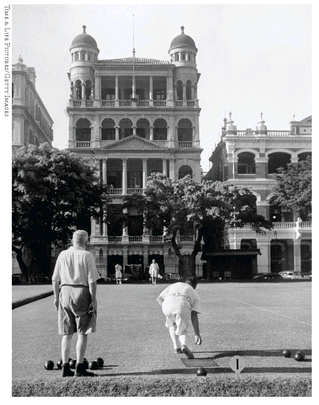
Â
Chris Patten (1944â), the 28th and last Governor-General of Hong Kong, receives the Union flag after it was lowered for the final time on 30 June 1997 marking the end of 156 years of British rule. He was fervently pro-democracy, believing, perhaps mistakenly, that this was what the British Empire had been all about.
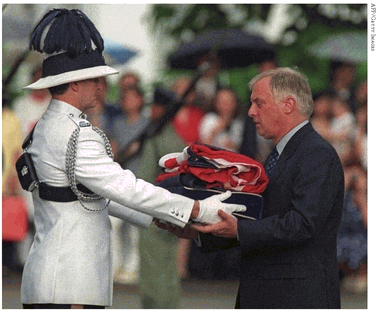
Kitchener was made governor general of the newly conquered Sudan in January 1899 and served for the rest of the year. He was not really a civilian administrator and the task of actually building the Sudan was left to others. His greatest legacy in the Sudan was the establishment of the Gordon Memorial College which later formed the basis for the University of Khartoum. He was adept at raising money for the institution, and was generally concerned about the education of the local inhabitants. His reputation scaled even greater heights after the Boer War, though his actual successes in that conflict were muted. When war broke out in Europe in 1914, it was to Kitchener that the British public turned as a national saviour. He remarked that most of his experience had been in the Near East, and that he knew little about conditions in Europe. But, almost uniquely among high-ranking officials, he realized that the war would last at least three years, at time when many believed that it would come to a victorious conclusion in a matter of months. Kitchener died on 5 June 1916 when the ship on which he was travelling struck a German mine off the Orkney Islands. Like that of General Gordon, his body was never found, which gave birth to strange myths that he was hiding in a cave in the Hebrides, or that he was a prisoner of war in Germany. Such was the fascination of the man that many simply refused to believe he was dead.
His career had been extraordinary. It combined exoticism, glamour and bravery. He enjoyed incredible success, being raised successively to a viscountcy and then to an earldom, being made a Knight of the Garter and a member of the Order of Merit, and being given the grant of an estate, Broome Park, near Canterbury. Unusually, an act of Parliament permitted his elder brother and his heirs to inherit the numerous titles he
had acquired, although, at the time of writing, his ninety-two-year-old great-nephew was still unmarried, making the imminent extinction of the title likely. More generally, Kitchener's career reveals certain truths about the nature of the British Empire.
had acquired, although, at the time of writing, his ninety-two-year-old great-nephew was still unmarried, making the imminent extinction of the title likely. More generally, Kitchener's career reveals certain truths about the nature of the British Empire.
Other books
Date with a Sheesha by Anthony Bidulka
A Guardian of Innocents by Jeff Orton
Rangers of Linwood (The Five Kingdoms Book 1) by LeAnn Anderson
Eight Little Piggies by Stephen Jay Gould
Blood Legacy: Heir to the Throne by Kerri Hawkins
They May Not Mean To, but They Do: A Novel by Cathleen Schine
Taken By Surprise by Nichelle Gregory
The Lost Years by T. A. Barron
A Desire So Deadly by Suzanne Young
Warbound: Book Three of the Grimnoir Chronicles by Larry Correia
